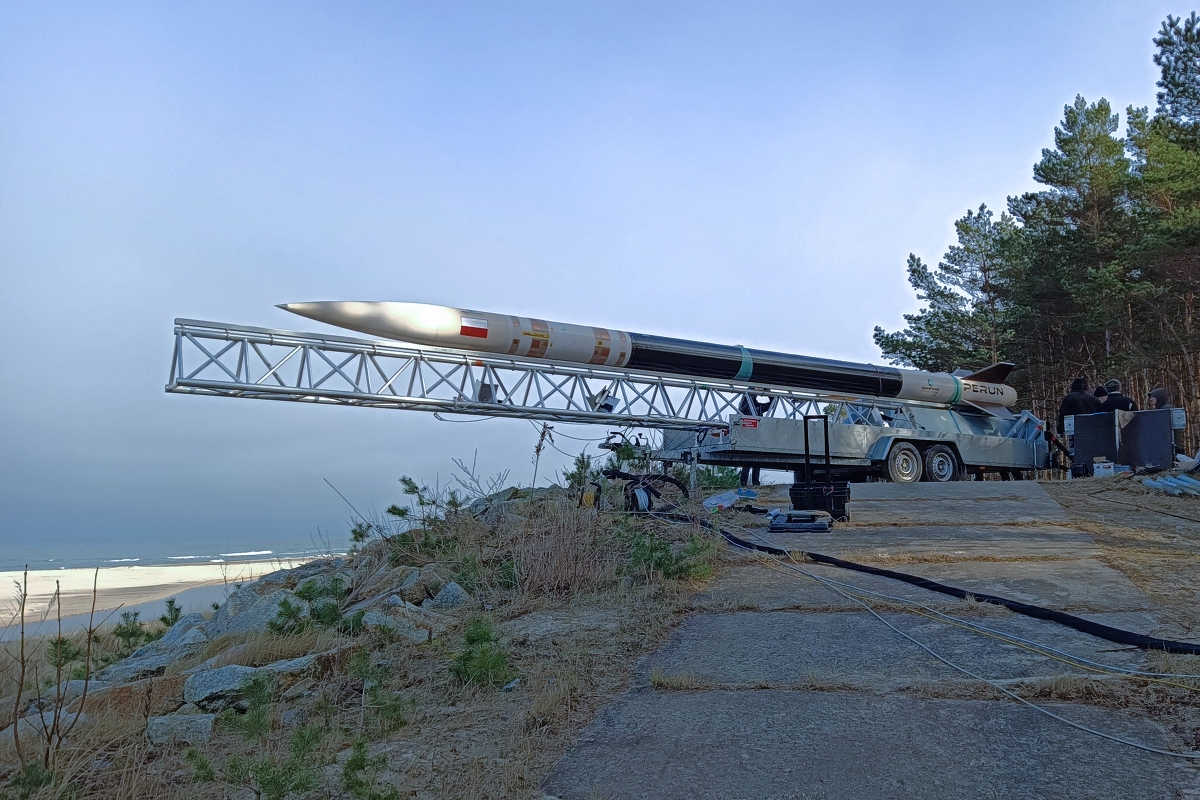Perun, the largest suborbital rocket in Poland’s history, is almost ready for launch.
SpaceForest, the company behind the rocket, plans to conduct a comprehensive test flight at an air force training center in Ustka on the Baltic coast. The rocket is scheduled to ascend to an altitude of 50 kilometers, which, if successful, will lead to a space launch this autumn.
Perun emerged from the Suborbital Inexpensive Rocket (SIR) project, which aimed to develop an affordable suborbital rocket capable of carrying a 50-kilogram payload.
The precise objective is to surpass the Kármán line, an arbitrary threshold marking the beginning of outer space at 100 kilometers above the Earth’s surface. The Polish Perun rocket presents a genuine opportunity to achieve this significant milestone.
The June tests will provide tangible evidence of the project’s objectives. However, the primary aim is to create microgravity conditions for a brief period by enabling the rocket to free fall after the engines cease operation, following a brief ascent. This initial phase of the project will culminate in Perun ascending to an altitude exceeding 100 kilometers this autumn.
As a suborbital rocket, Perun will not enter Earth’s orbit. Once it reaches the designated altitude, it will safely return to Earth using parachutes. Its full reusability means it can be deployed multiple times. Measuring 11.5 meters in height, 0.45 meters in diameter, and weighing just 970 kilograms, Perun promises cost-effective operations.
The rocket’s applications extend to conducting experiments in conditions akin to those aboard the International Space Station. During free fall, the payload will not be subjected to any direct external forces, a state that can last for up to five minutes.
Not only is Perun reusable, but the cost of launching payloads onboard amounts to approximately $5,000. Considering the prices charged by foreign private space companies, this figure is relatively low. Consequently, scientists worldwide are expected to express interest in the rocket following successful tests.
Perun boasts an engine that emits no harmful substances into the atmosphere, thanks to the SF 1000 hybrid engine technology powered by modified paraffin. Engineers say that the modern construction using composites ensures high mechanical and thermal strength.
Furthermore, it is one of the first rockets in the world that utilize eco-friendly fuel. Its mobility is another asset, as it can launch from specialized launchpads set up in various locations.
According to SpaceForest, Perun should become commercially available later this year, with the capacity to carry payloads weighing up to 50 kilograms to an altitude of 150 kilometers. The fact that Perun holds the distinction of being the largest rocket ever launched in Poland is already a source of pride for the project’s creators. While Perun has successfully passed all previous tests, its most challenging trial still lies ahead.






